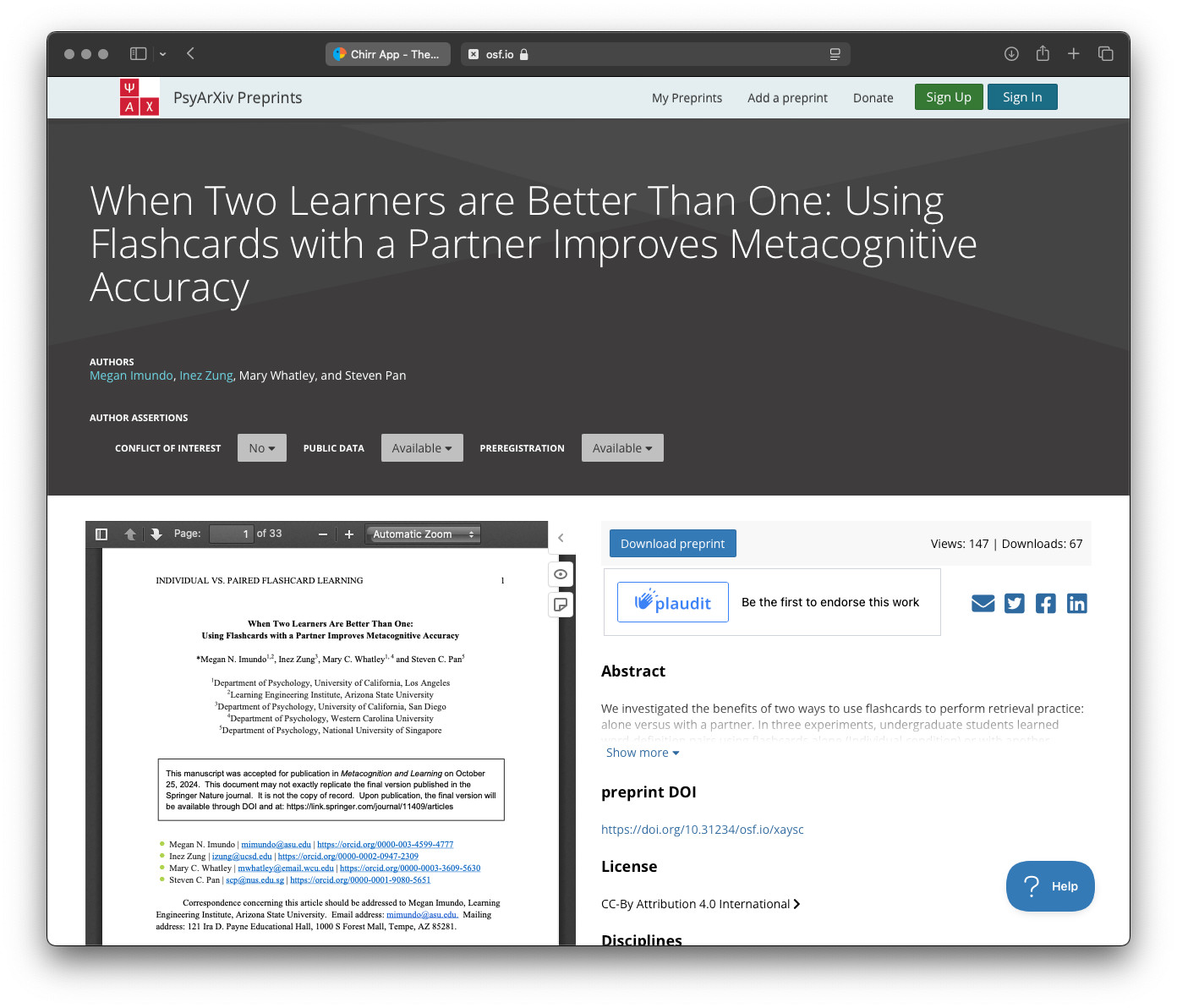8/ Study comparing solo vs partner flashcard use
→ finds both methods lead to similar learning, but using flashcards with a partner helps students judge their own learning more accurately, which can support metacognition
https://osf.io/preprints/psyarxiv/xaysc
→ finds both methods lead to similar learning, but using flashcards with a partner helps students judge their own learning more accurately, which can support metacognition
https://osf.io/preprints/psyarxiv/xaysc

Comments
→ finds record lows in both enjoyment and daily reading amounts 😢
https://nlt.cdn.ngo/media/documents/Children_and_young_peoples_reading_in_2024_Report.pdf
→ finds it enhances understanding and retention
(adding to the evidence that pretty much everyone stands to benefit from a focus on effective teaching)
https://www.sciencedirect.com/science/article/pii/S0959475224001750
→ finds that reading multiple related texts supports retention and metacognitive accuracy (whereas rereading single texts promotes overconfidence without long-term benefits)
https://link.springer.com/article/10.1007/s11251-024-09686-4
→ finds that students learn most when they experience a ‘not quite sure’ state of knowing (moreso than feeling ‘curiosity’)
https://link.springer.com/article/10.1007/s11409-024-09407-9
→ explains how knowledge-rich curricula can support deep student thinking
https://link.springer.com/book/10.1007/978-3-031-74661-1
→ finds that it boosts vocabulary and domain knowledge (especially for those who start with stronger vocab)
https://psycnet.apa.org/fulltext/2025-46446-001.html